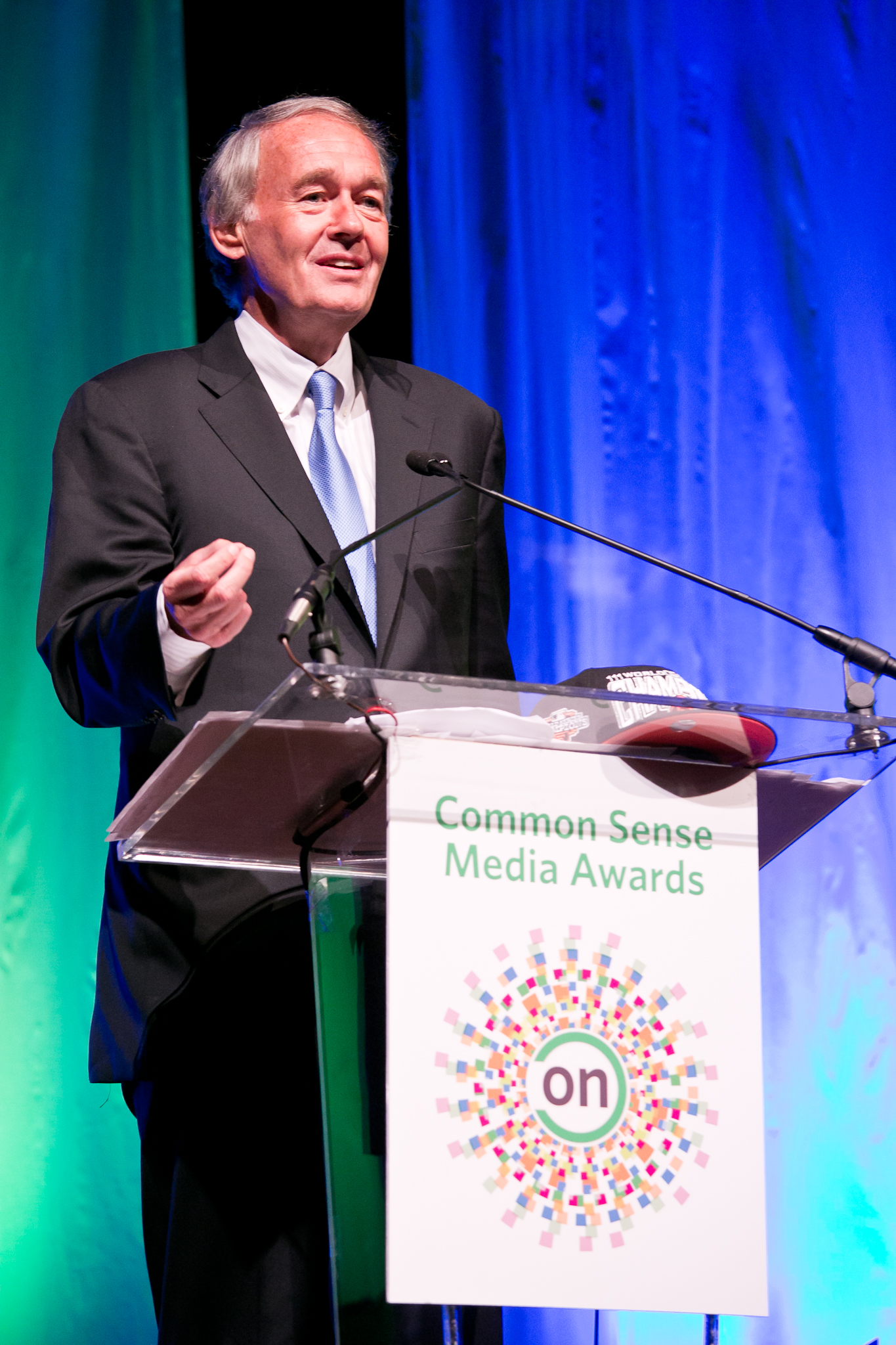Senator Markey is a national leader on telecommunications and technology policy, passing legislation that helped lay the foundation for the digital revolution. In the House of Representatives, he co-authored the three landmark bills that ushered in a new era for communications, consumer choice and innovation – the 1992 Cable Act, the 1993 law that moved over 200 MHz of spectrum, and the Telecommunications Act of 1996, which established the “E-rate” rate for schools and libraries and the V-Chip for parental control of TV violence.
Competition is Senator Markey’s economic mantra. Accordingly, he has been instrumental in breaking up anti-consumer, anti-innovative monopolies in telephone service, cable television, and international satellite services. He was a principal author of the requirement that the Bell Operating companies accept local telephone service in the 1990s. His pro-competition policies have created jobs in Massachusetts and throughout the country. He is a champion for Net Neutrality and nondiscrimination on the Internet and for new sources of effective competition to cable TV franchises, telephone operators, and other wireless services.
He also is the champion for stronger online privacy protections, especially for children. In 1999 Senator Markey co-founded the Bi-Partisan Congressional Privacy Caucus, which aims to educate members of Congress and staff on matters of privacy.
Throughout his entire career, Senator Markey has been a leader on protecting consumer privacy, especially for children and teens. Markey is the House author of the Children’s Online Privacy Protect Act of 1998 (COPPA), which took major steps towards protecting the personal information of children online. To address evolving technologies, Senator Markey introduced new, bicameral bipartisan legislation to update COPPA, the Do Not Track Kids Act. The legislation would prohibit Internet companies from sending targeted advertising to children and minors; prohibit Internet companies from collecting personal and location information from anyone under 13 without parental consent and anyone 13 to 17 years old without the user’s consent; and require website operators to have an “eraser button” capability for the deletion or elimination of information about children and minors.
Senator Markey introduced legislation to update the Children’s Online Privacy Protection Act by prohibiting internet companies from collecting personal information from anyone under the age of 13 without parental consent. In 2019, Senator Markey successfully pushed YouTube to prohibit targeted advertising in children’s content on YouTube and prohibit advertisements that are violent, sexually explicit, or age-inappropriate in children’s videos on YouTube.

Openness is the Internet's heart and nondiscrimination is its soul, and infringements on either of these features undermines the spirit and intent of net neutrality. No one should have to ask permission to innovate, and we need to retain the ability of all Internet users to communicate and compete on a level playing field, preventing the presence of fast and slow lanes that are contrary to the essence of the Internet.Senator Markey is committed to ensuring that the Internet remains free, open, and accessible. In 2006, he was the author of the Network Neutrality Act, the first-ever net neutrality bill in the House of Representatives, which would ensure that as the Internet continues to evolve, it remains a level playing field guided by the principles of openness and competition. Senator Markey also has consistently opposed any attempts to undercut openness and innovation on the Internet.
Senator Markey led 46 Senate Democrats in introducing the Save the Internet Act which would reverse the Trump FCC’s decision to repeal net neutrality protections. The Save the Internet Act passed the House of Representatives in 2019 and Senator Markey has led the call for Senator McConnell to bring the legislation to the Senate floor for a vote.
On October 8, 2010, President Barack Obama signed into law sweeping new legislation authored by then-Representative Markey. The 21st Century Communications and Video Accessibility Act enables Americans with disabilities to use a wide range of devices and services needed in the digital era, including smart phones for accessing the Internet, closed captioning for online video, audio descriptions of television programming, audible emergency alerts and other technologies
Senator Markey continues to be one public broadcasting’s most ardent supporters, fighting to fight to protect one of our most valuable landmarks on the entire media landscape. Sometimes appearing alongside Arthur the Aardvark and Big Bird, Senator Markey has fought to ensure public broadcasting is fully funded so viewers will continue to receive the best in educational, cultural and informational programming. As Senator Markey says, “CPB doesn’t just stand for Corporation for Public Broadcasting. It also stands for: Children and Parents Benefit.”